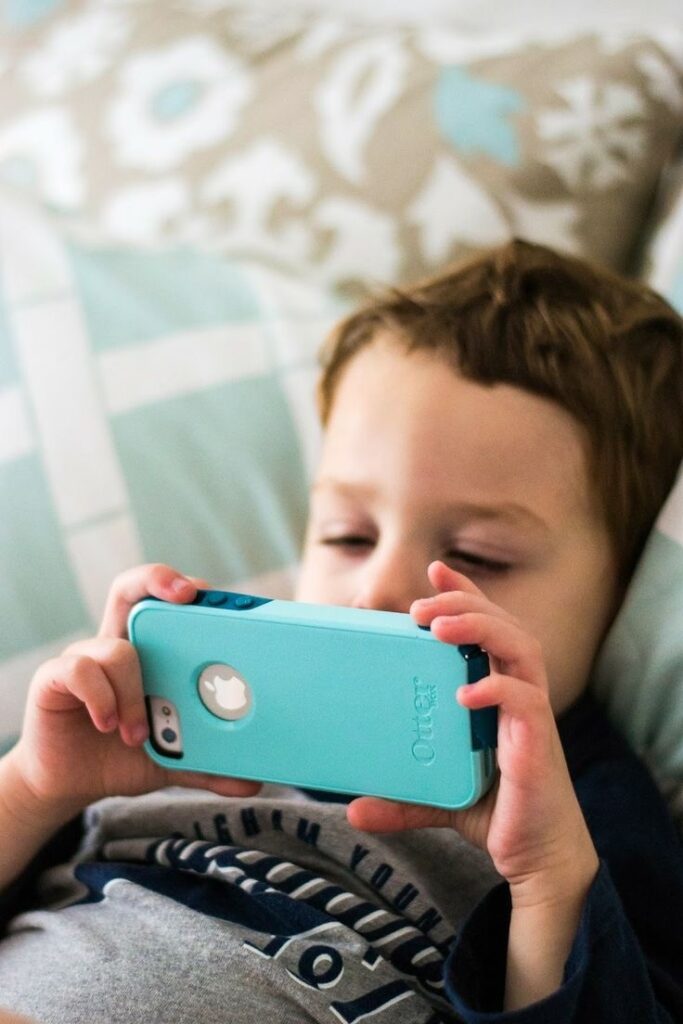Globally, the use of cellphones by adults and children alike is rapidly increasing in this digitally connected age. Children use cellphones for a variety of purposes, such as making video calls to friends and family, playing games, accessing social media, and participating in online education.
In a recent interview with the Mirror, Bill Gates revealed his parenting philosophy regarding smartphone use. He disclosed that his children were not allowed to have smartphones until they were fourteen. To support healthy sleep habits, Gates stressed the importance of setting boundaries, such as enforcing a curfew on screen usage. He further emphasized that although smartphones are permitted for educational use, they should not be used during meal times.
It’s important to note the potential health implications associated with smartphone use. Cell phones emit non-ionizing radiation, a form of low-energy radiation that has been categorized by the International Agency for Research on Cancer (IARC) as a “possible human carcinogen.” This classification underscores the need for continued research and vigilance regarding the long-term effects of radiofrequency (RF) radiation exposure on health.
Although we aim not to incite alarm with this information, it’s crucial to acknowledge findings from various studies indicating a potential risk of tumors among individuals who excessively use smartphones. While conclusive evidence linking cell phone radiation directly to tumors remains elusive, there is a discernible correlation between excessive smartphone usage and an elevated risk.

The Gates children, now aged 20, 17, and 14, have surpassed the minimum age threshold for owning a phone set by their father. However, they are still prohibited from possessing any Apple products within the household, a policy reflecting Bill Gates’ longstanding rivalry with Apple’s co-founder, Steve Jobs.
Despite the absence of definitive proof regarding the extent of detrimental effects on a child’s brain due to cell phone usage, certain studies have unearthed disconcerting findings. Initial data from the Adolescent Brain Cognitive Development (ABCD) study suggests that heightened screen time, including prolonged cell phone usage, can detrimentally impact cognitive functions, psychological well-being, sleep patterns, and behavioral tendencies in children. This phenomenon may culminate in a shortened attention span and potentially foster tendencies toward violent or aggressive behavior.
Studies on brain imaging have shown that children who spend excessive time in front of screens experience faster thinning of the cortex, the outermost layer of the brain responsible for processing sensory information from all five senses. This premature cortical thinning suggests an accelerated maturation process that may be influenced by extensive early mobile use.
Children’s ongoing physical growth makes them particularly vulnerable to the negative effects of mobile phones. Furthermore, there is increased exposure to electromagnetic fields (EMF) when phones are carried in hands, pockets, or bags. The exposure continues since children often sleep with their phones next to their heads, thereby increasing the risk.

It’s crucial to acknowledge that not every child or adolescent will encounter adverse effects from mobile phone usage, and many can maintain a healthy and balanced relationship with their devices. However, parents, guardians, and educators play pivotal roles in fostering responsible mobile phone habits and guiding young individuals through the complexities of the digital landscape while prioritizing their mental well-being.
Promoting open dialogue and establishing clear boundaries can serve as effective tools in raising awareness among children and teenagers about both the positive and negative impacts of mobile phone usage. By facilitating honest conversations, adults can empower young individuals to make informed choices about their screen time and digital interactions.
Furthermore, it’s important to recognize when professional intervention may be necessary. If concerns arise regarding a child’s or adolescent’s mental health, whether attributed to mobile phone usage or other factors, seeking guidance from mental health professionals is advisable. This proactive approach ensures that appropriate support is provided to address any underlying issues and safeguard the individual’s overall well-being.
Sources
- https://www.medicinenet.com/how_do_cell_phones_affect_a_childs_brain/article.htm#:~:text=Preliminary%20data%20from%20an%20Adolescent,their%20attention%20span%20and%20potentially
- https://www.statefarm.com/simple-insights/family/effects-of-cell-phones#:~:text=Excessive%20device%20use%20can%20lead,Less%20physical%20activity
- https://sherwoodhigh.com/blogs/5-harmful-effects-of-smartphones-on-the-development-of-your-child/
- https://www.compass-uk.org/services/compass-changing-lives/what-effects-do-mobile-phones-have-on-children-and-young-peoples-mental-health/
- https://bangalore.globalindianschool.org/blog-details/harmful-effects-of-mobile-phones-on-students




